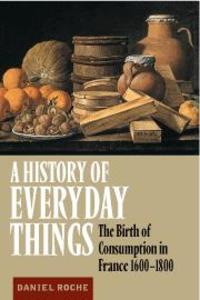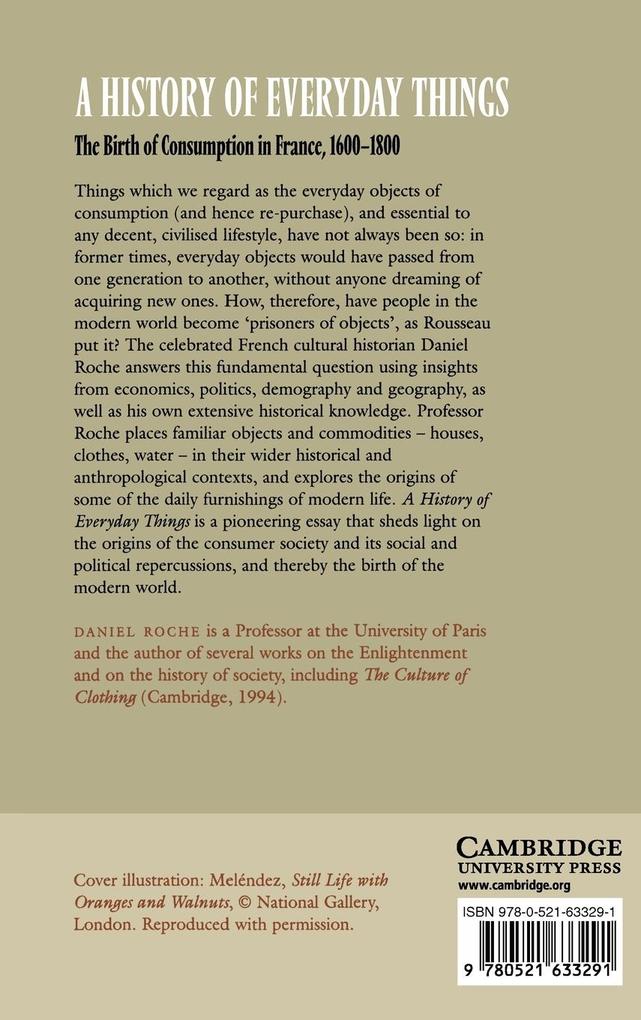Things which we regard as the everyday objects of consumption (and hence re-purchase), and essential to any decent, civilised lifestyle, have not always been so: in former times, everyday objects would have passed from one generation to another, without anyone dreaming of acquiring new ones. How, therefore, have people in the modern world become 'prisoners of objects', as Rousseau put it? The celebrated French cultural historian Daniel Roche answers this fundamental question using insights from economics, politics, demography and geography, as well as his own extensive historical knowledge. Professor Roche places familiar objects and commodities - houses, clothes, water - in their wider historical and anthropological contexts, and explores the origins of some of the daily furnishings of modern life. A History of Everyday Things is a pioneering essay that sheds light on the origins of the consumer society and its social and political repercussions, and thereby the birth of the modern world.
Inhaltsverzeichnis
Introduction; Part I. Production and Consumption: 1. The natural framework and the human framework; 2. Towns, trade and inventions; 3. Ordinary consumption and luxury consumption; Part II. Ordinary Life: 4. Rural and urban housing; 5. Lighting and heating; 6. Water and its uses; 7. Furniture and objects; 8. Clothing and appearances; 9. Bread, wine, taste; Conclusion.











